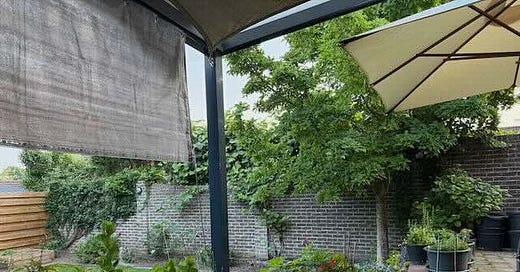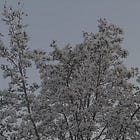I’ve been rambling on lately about something that’s been gnawing at me, this whole business of passive consumption. You know what I mean, that mindless scrolling, watching, listening that we tell ourselves is “research” or “inspiration” when really, it’s just another way to avoid the hard work of creating.
I’ll convince myself that watching Matt Armstrong’s car restoration videos or browsing through Scotland’s Mountains YouTube channel is somehow feeding my creativity. And sure, these things are genuinely interesting, fascinating even. But honestly, they’ve got bugger all to do with helping me write my next scene or craft a better newsletter.
It’s a clever little trick our minds play on us. We’re not just mindlessly consuming junk; we’re being discerning. We’re choosing quality content. We’re learning something. Upon closer examination, though, most of this consumption is merely sophisticated procrastination disguised as intellectual activity.
Resistance in Disguise
This sounds very much like one of Steven Pressfield’s manifestations of Resistance, that sneaky bastard that finds increasingly creative ways to keep us from doing the work. Resistance has evolved, you see. It’s not content to make us feel lazy or unmotivated anymore. Now it studies us, learns our weaknesses, and presents us with perfectly reasonable alternatives to actually creating.
“You can’t write yet,” it whispers. “You need more inspiration. You need to stay up-to-date with the latest trends. You need to watch this video about story structure. You need to listen to this podcast about character development.” And before you know it, three hours have passed, and you haven’t written a single word.
I’ve written extensively about my procrastination problem and this ongoing battle with Resistance, but I think I’ve been blind to this particular manifestation. It’s finding good things for me to consume rather than create. The content isn’t trash – it’s often brilliant, educational, and inspiring. But that’s what makes it so insidious.
The Creative Muscle
Here’s the thing about creativity: it’s like any other muscle. If you don’t use it, you lose it. That’s probably why I’ve found writing the newsletter increasingly difficult over the past month or so. Not because I don’t have anything to write about, there’s always plenty to explore. But because the same themes keep cycling through: procrastination, resistance, and finding time to write. Same, same, same.
The irony isn’t lost on me. I’m writing about not being able to write because I’m too busy consuming content about writing instead of actually writing. It’s like being stuck in a creative feedback loop that produces everything except actual creation.
I owe it to my readers to ramp things up, to get back to producing something more engaging. Remember that post I wrote about writer’s block possibly being a form of creative incubation? That felt fresh, useful, and true. But lately, I feel like I’m rehashing the same ground, which is another aspect of this resistance problem.
Lacking Self-Discipline
The solution, I think, lies in strict adherence to a creative schedule. Not necessarily a fixed schedule, life's too messy for that, but a commitment to devoting a certain amount of time each week to the craft itself. Otherwise, I'll stay trapped at this medium level of skill, never pushing through to something better.
But here's where I always trip myself up. I'll make these grand plans about being ruthless with my consumption habits. I'll tell myself I'm going to distinguish between active and passive consumption like some sort of digital monk. Reading? Absolutely essential for any writer, but it needs to be purposeful, limited, and balanced with actual creation. Podcasts about writing? Fine, but only during designated times.
The thing is, I've written variations of this exact resolution about a dozen times over the past year. Time blocking, planning, and scheduling, I've tried them all. And they work... for about a week. Then life happens, or I get tired after a long day at the day job, or I tell myself "just this one video,” and suddenly it's two hours later.
It's easy to write about self-discipline when you're feeling motivated on a Sunday morning with your coffee and good intentions. It's another thing entirely when you're knackered on a Wednesday evening and that YouTube algorithm is serving up the kind of content that feels educational but isn't really helping you write better.
The creative process needs to be oiled like any other machine, sure. But knowing that and doing the maintenance? Two completely different things. I've been so busy feeding the input side of the equation that I've neglected the output, and knowing why I'm doing it doesn't seem to stop me from doing it.
Breaking the Cycle
So, here we go yet again. The plan is to implement stricter boundaries around consumption. Certain times of the day and week can be devoted to learning, exploring, and being inspired. But at other times, just as proactively scheduled, it must be reserved for creative work. Whether that’s writing, researching, or editing doesn’t matter. What matters is that I’m actively creating rather than passively absorbing. Sounds doable, but I know me, to stand any chance of success, I’ll have to be disciplined about it. Otherwise, it’ll be back to square one.
Second, I’m going to start treating consumption with the same intentionality I (try to) bring to my writing. Before I click on that video or start that podcast, I’ll ask myself: “Is this serving my creative goals right now, or am I just avoiding the work?” Strange isn’t it, not long after I wrote this line, I took a break from the keyboard, supposedly for 30 minutes or so. Bloody YouTube hijacked me again.
Third, I need to trust the process more. Sometimes, what feels like a creative drought is actually a creative incubation. But you can’t tell the difference if you’re constantly filling your head with other people’s ideas. Now this is something I can get behind. I’m much more confident in my writing than, say, six months ago. I’m not against skipping a video or podcast if it doesn’t quickly grab my attention, in the right creative way, of course.
Final Thoughts
The fine line between inspiration and procrastination is thinner than we’d like to admit. In our content-saturated world, it’s easier than ever to mistake consumption for creation, to confuse being busy with being productive.
The truth is, passive consumption, no matter how high-quality, can never be a substitute for the messy, demanding, and rewarding work of creating something new. We can watch a thousand videos about writing, listen to every podcast about creativity, and read every book on craft, but none of that matters if we’re not putting words on the page.
The creative muscle needs exercise, not just nutrition. And sometimes, the most radical thing we can do is close the laptop, put down the phone, and sit with the uncomfortable silence that precedes real work.
Have a great week ahead, we’ll talk again soon. Mike







Here’s a truth bomb :: virtual reality is not productivity. It’s an illusion. These screens are hijacking our soul’s while we remain in a trance.
Guilty as described. One of the problems I find that underpins the passive consumption, is the subconscious acceptance that the world of other peoples' creative content is impossibly huge, and how am I ever going to compete in syndicating my little idiosyncratic inconsequential (probably clichéd) output across the world? Maybe I'm deluding myself?